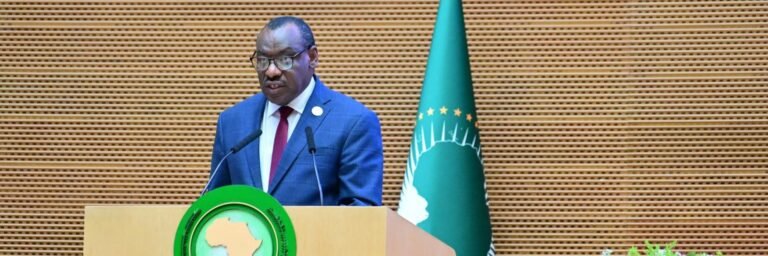Claver Gatete, Executive Secretary of the Economic Commission for Africa (ECA), has called for fair and equal access to climate finance. He made these remarks during a side event at the Fourth Preparatory Committee meeting in Washington. The event was held alongside the World Bank and IMF spring meetings. Gatete emphasized that although Africa contributes the least to global emissions, it suffers the most from climate change impacts. He urged for financial reforms ahead of the upcoming Financing for Development conference (FfD4) in July 2025.
Africa faces climate crisis despite low emissions
Africa produces less than 4 percent of global carbon emissions. Still, it suffers from extreme weather, droughts, and rising temperatures. Gatete said these effects continue to grow while access to climate funding remains limited. The situation makes it hard for African countries to prepare and protect their people and economies.
He noted that the cost of climate adaptation is rising each year. Many African countries struggle to get affordable and timely support from international climate funds. This limits their ability to act fast during natural disasters or invest in long-term climate solutions.
Focus of the FfD4 conference
The side event in Washington was organized by the ECA and the African Union Commission. It aimed to prepare Africa’s input for the Financing for Development conference (FfD4) in Seville, Spain. The conference will take place from June 30 to July 3, 2025. The goal is to ensure Africa’s priorities are reflected in the global finance agenda.
Gatete said the conference offers a rare chance to change how global finance works for Africa. He urged African nations to take this opportunity to shape rules that support sustainable development across the continent.
Illicit financial flows weaken Africa’s resilience
Gatete raised concerns about the $89 billion that leaves Africa every year through illegal and unfair financial flows. He said this loss limits the continent’s ability to fund public services like health, education, and innovation.
He encouraged governments to widen their tax bases and use digital tools to improve their tax systems. This would help reduce money leaks and increase public income. He also supported a global tax deal that includes African voices to ensure fairness in international rules.
Debt crisis blocks development
Many African countries face high levels of public debt. Over 20 nations are either already in debt distress or are at serious risk. Gatete said this situation prevents these countries from investing in their future.
He called for changes in the global debt system. This includes creating a multilateral debt workout process and reforming the G20 Common Framework. He also proposed a temporary freeze on interest payments and the setup of a global debt authority to help countries restructure their debts in a fair and timely way.
Reforming climate finance structures
Gatete stressed the need to change how climate finance is offered to African countries. He said the system should focus on giving grants instead of loans. It should also support climate adaptation projects rather than just climate mitigation.
He said Africa’s natural resources, like forests and minerals, must be valued properly. These assets should support sustainable development, not just be exploited for short-term profit.
Fixing global financial institutions
Gatete repeated his call for reforms at major international financial bodies such as the World Bank and IMF. He welcomed the African Union’s inclusion in the G20 and some small wins in voting power at global financial institutions. However, he said more change is needed.
He urged for a complete update of quota systems and voting rights. He said Africa needs a financial structure that centers on its needs, such as building strong industries, preparing for climate change, and developing skilled workers.
Creating an accountability system
Gatete proposed setting up an African platform to monitor the promises made at the FfD4 conference. This system would track progress, highlight gaps, and push for real action.
He said good data systems are also necessary. Without clear and reliable data, countries cannot measure progress or hold anyone responsible for delays or broken promises.
Private investment is essential
Africa needs more than public funds to grow. Gatete said the continent must attract private investors to close its yearly funding gap. This gap is estimated to be between $100 billion and $150 billion. He encouraged the creation of financial tools and policies that make it easier for private money to flow into African projects.







